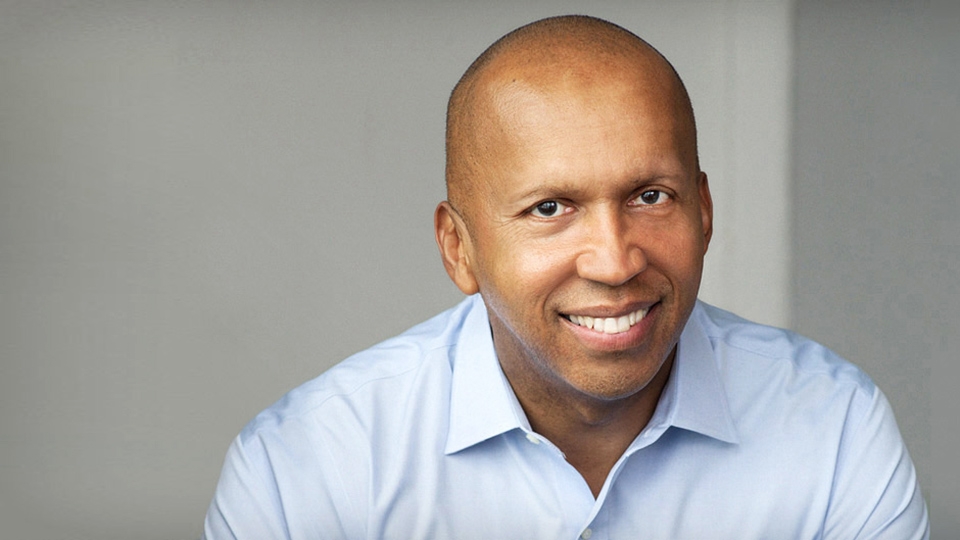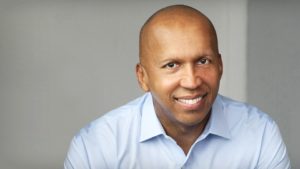
04/04/19
Griffin Sendek | Features Editor

As part of Robert Morris University Pittsburgh Speakers Series, Bryan Stevenson, an acclaimed lawyer famous for his work in criminal justice reform, was invited to give a speech at Heinz Hall on March 27
Stevenson structured his lecture around the ways in which people can change the world, beginning with the power of proximity — delineating the importance of being close to those who are suffering.
“You can’t change the world from the comfortable place we know,” he said.
He fundamentally believes that positive social change will never be possible until those who are living comfortably become close with those who are suffering.
“Power in proximity is in places where people are struggling,” said Stevenson. “Listen, the things you take in will empower you to change the world”.
Scattered throughout his discussion of criminal justice were stories and anecdotes from his childhood, college days and life as a lawyer. Stevenson told of the first time he went to visit an inmate on death row, all he had to do was tell an inmate named Henry that he was not going to be executed any time within the next year, yet Stevenson was still remarkably nervous for the encounter. When he told Henry, the news, Henry immediately took Stevenson by the hand and he could not be happier to find out that he still had more life to live.
Stevenson and Henry ended up speaking for several hours before the guards shackled and forcibly removed Henry from the cell.
The second method Stevenson gave for changing the world was by changing narratives.
Stevenson spoke at length about the racial issues that this country still faces, bringing up how America was founded with the slaughter of native Americans.
Stevenson said, “The fact that we live in a post-genocide society” had shaped and formed the narrative of racial difference to justify violence, and that very narrative of racial difference was used to justify slavery.
Stevenson went on to state how the belief that racial disparity all but ended in the 1960s is as far from the truth. The battle for equal rights is a battle being fought to this very day. “We’ve gotten too celebratory of the civil rights movement,” he said.
Stevenson gave the example of Germany trying to change the narrative, doing everything they can to separate themselves from Nazism, meanwhile “no one in the U.S. likes talking about race and slavery.”
The third method Stevenson discussed was committing to staying hopeful.
“Hopelessness is the enemy of justice,” he said.
Without hope, Stevenson believed that the world was incapable of any change whatsoever.
“Either you’re hopeful or you’re the problem,” Stevenson said.
The fourth method Stevenson gave was being willing to do things that are uncomfortable and inconvenient.
Stevenson spoke to the fact that social change has ever happened by people doing something comfortable or convenient.
One of the final stories that Stevenson told was of a phone call he got from a desperate inmate, 30 days away from his execution, asking Stevenson if there was anything that he could do. Stevenson quickly discovered that the man had an intellectual disability, and there was a law preventing the execution of any prisoners with intellectual disabilities.
Stevenson argued the man’s case in court only to be told that the disabilities should have been recorded previously and that it was too late to change anything. The case moved up from court to court, each time receiving the same response that it was too late. One hour before the execution, they received the verdict from the Supreme Court, finding out that the motion was denied.
Minutes prior to the execution Stevenson got on the phone with the inmate. The inmate was sobbing on the phone and trying to get a word out but couldn’t because of his bad stutter. Eventually when he was able to get his words out, he told Stevenson,
“Mr.S, I want to thank you for representing me. Mr.S, I love you for trying to save my life.”
At that moment Stevenson felt broken, that he worked trying to help broken people within a broken system. It was also that very moment after hanging up the phone that Stevenson realized, “I do what I do because I’m broken too.”
Harking back to his statement about changing the world with proximity, Stevenson said, “You don’t have to be perfect and whole to change the world, sometimes it’s the broken that can show us what it means to be human.”
Stevenson believes the world is in deep need of change, but he does not think that change is unobtainable. Attending his speech, it was clear that he truly believes in the human capacity for making a difference. People just need to get off their feet, out of their comfort zones, close to those who are struggling, and above all remain hopeful.




